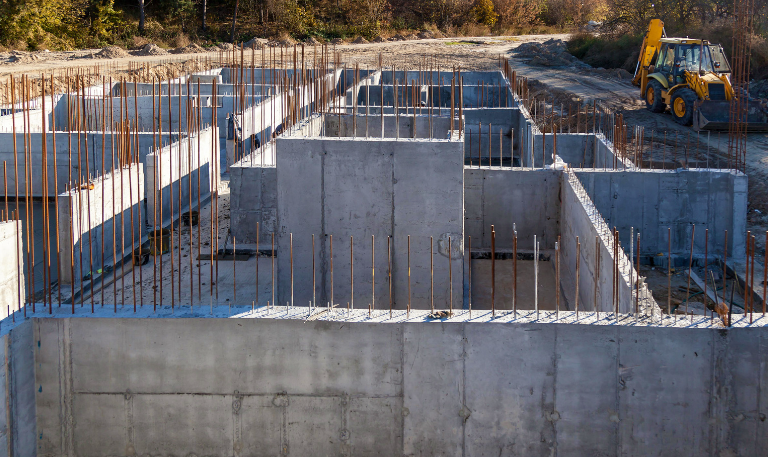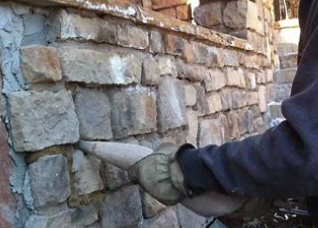Understanding The Advantages And Disadvantages Of Concrete Masonry Units
Concrete masonry units (CMUs) have been a go-to material in construction for decades. Their use is widespread due to their durability and cost-effectiveness. Thus, they are the ideal material for a range of building projects. However, like all materials, they come with certain limitations.
In this article, we at Ernest Maier will discuss the advantages and disadvantages of concrete masonry units. We offer insight into why they remain a popular choice and when alternatives may be a better fit.
What Are Concrete Masonry Units?
A concrete masonry unit, or CMU, is a type of block used in construction for building walls. These blocks are made from a combination of concrete and aggregates such as sand, gravel, or crushed stone. After the blend is poured into molds and compacted, the blocks are cured and delivered to construction sites.
Builders must balance cost, structural integrity, and energy efficiency when selecting building materials. CMUs have long been trusted for their strength and fire resistance. Hence, builders have relied on them for everything from residential homes to large-scale commercial buildings. These are available in a variety of shapes and sizes to suit different applications.
However, advances in construction technology have introduced new options that address some of CMU’s shortcomings. Insulated concrete blocks (InsulBlock) are one of these new options. Understanding these materials and their pros and cons can help you make informed decisions for your next project.
Concrete Masonry Unit Advantages and Disadvantages
To understand whether CMUs are the right choice for a project, it’s important to weigh both the benefits and limitations they present. This section will provide a clearer picture of their strengths and potential drawbacks.
Advantages of Concrete Masonry Units
One of the main reasons CMUs remain a staple in construction is their versatility. They can be used across different building types, from homes to industrial buildings. Concrete has excellent strength under compression and is highly resistant to structural damage.
CMUs are also fire-resistant. They offer additional safety in environments where fire protection is a priority. This durability also includes weather resistance as CMUs perform well against moisture, pests, and impact damage.
For large projects, the cost-efficiency of CMUs cannot be overlooked. Since they are mass-produced, CMUs tend to be less expensive than other construction materials. Their availability also makes material shortages less likely. This is a significant advantage for builders working on a tight schedule. Masonry projects benefit greatly from the structural integrity that CMUs offer and are often used for load-bearing walls and other key structural components.
Disadvantages of Concrete Masonry Units
Despite the benefits, concrete masonry units do have some notable drawbacks. One of the biggest challenges is their weight. CMUs are heavy, which can complicate transportation and construction.
Moving these blocks around a job site often requires machinery. This can add to the overall cost and time of the project. Laborers who work with CMUs face additional strain, especially when installing larger dimension blocks.
Finally, constructing with CMUs can be time-consuming. As the blocks are heavy and require precise placement, building with CMUs demands skilled labor. Installation mistakes can lead to structural flaws and this can require extensive repairs and potentially extend the timeline for completion. Additionally, vertical reinforcement and grouting may be necessary, prolonging the construction process.
Why Choose Ernest Maier for Your Construction Supply Needs?
As we’ve explored the advantages and disadvantages of concrete masonry units, it’s clear that CMUs have and will continue to serve the industry well for many years. We provide high-quality concrete and masonry products at Ernest Maier. Furthermore, we offer innovative alternatives such as insulated CMUs for those looking for more energy-efficient and simplified solutions.
Our expertise in construction materials spans nearly 100 years. We pride ourselves on being a reliable partner for architects, engineers, contractors, and homeowners alike. If you’re working on a large-scale commercial project or updating your outdoor space, we have the products you need to get the job done right.
If you’re unsure about what materials are best suited for your project, our dedicated sales team is here to help. We can guide you in selecting the right products, from basic gray CMUs to innovative alternatives. Contact us today to learn more about our range of construction materials and how we can support your next project.

SalesmanChristian Murphy
Latest News

4 Ways To Reinforce Concrete
Concrete is one of the most fundamental materials used in construction. If you’re working on a domestic project or a […]

The Environmental Benefits Of Using Ready-Mix Concrete
The construction industry is changing quickly to meet the growing demand for sustainability and eco-friendly practices. One of the most […]

6 Essential Tips For Grouting Stone Veneer
Grouting stone veneer is an important step in the installation process that can significantly impact the overall look and durability […]

Should You Fill Hollow Concrete Blocks?
Hollow concrete blocks are widely used in construction due to their strength, versatility, and lighter weight compared to solid blocks. […]
